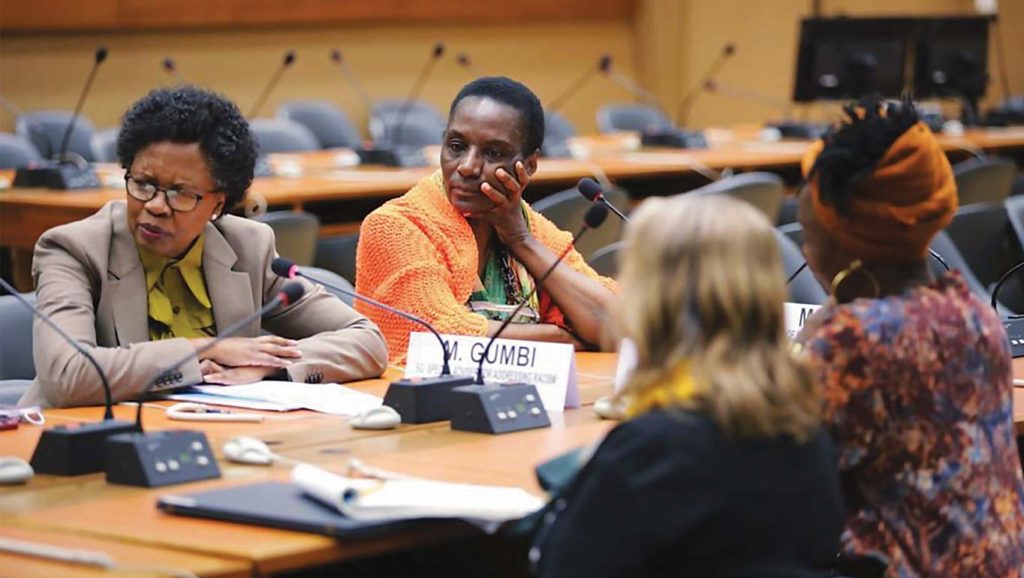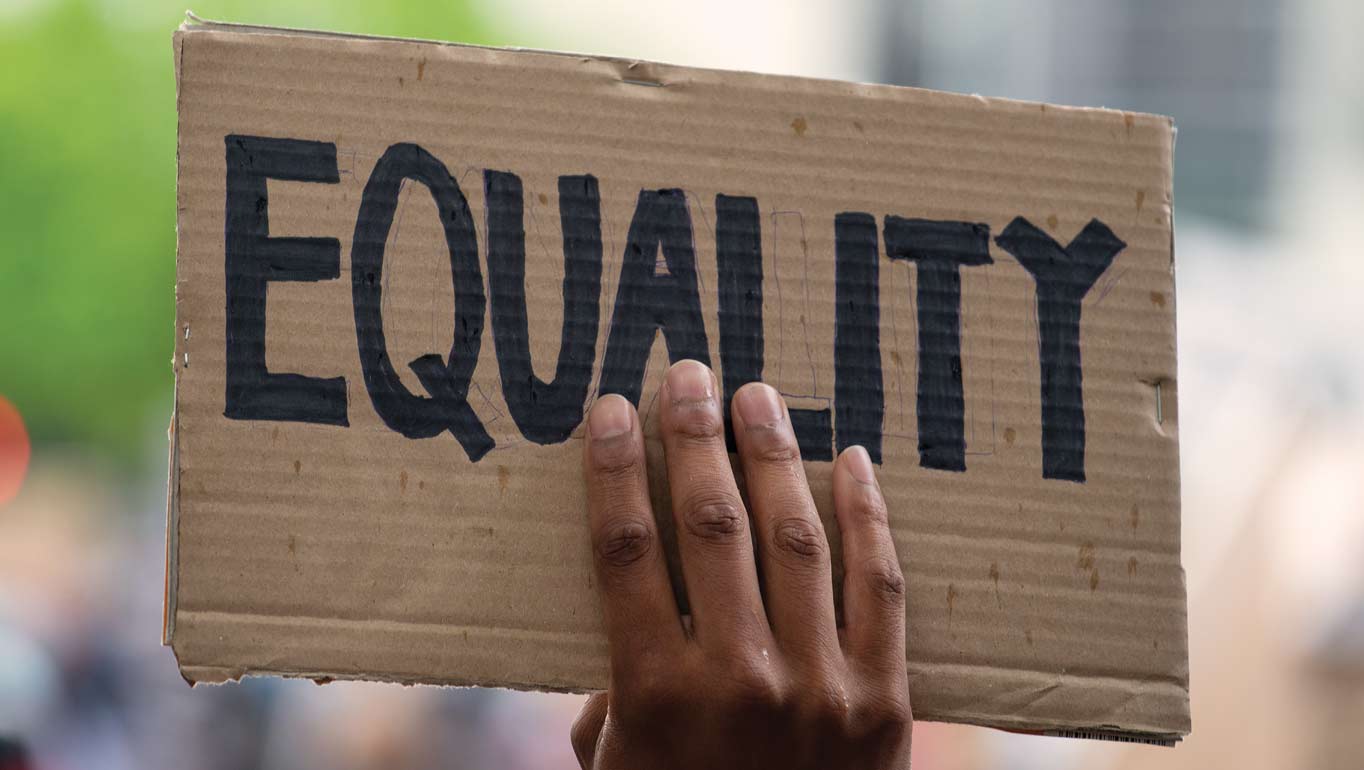You have been selected by the Secretary-General to be his Special Adviser on the fight against racism in the workplace. What aspect of your background made him choose you?
Firstly, he would be the one to ask, but I believe that just from being a South African, I have really come to understand racism in all its manifestations and facets. Secondly, it may be because I have been an activist all my life for the liberation of South Africa and I chose law as a career in order to give my activism a platform. Through that, I have been able to work with people across the board. When I was a young lawyer, I represented people from all political parties and 90% of my practice was defending activists against apartheid.
When I went into government, I was able to work in the President’s office for figures such as President Mandela and President Mbeki. Most people used to say, “how come you are not a member of their political party, but you are able to serve the government professionally?”- but it was because of the commitment to serve, and the love that I have for the people of South Africa. Lastly, I always try to look beyond the person and focus on issues, coupled with the fact that I get along well with many senior people from different political parties.
Do you have previous knowledge of the UN system?
I have worked very closely with the UN system, but from a South African member state perspective. I spent a short time in New York in 1999 when then Secretary-General Ban Ki-moon asked me to come and help in the Department of Peacekeeping. I was also in many UN negotiations as a representative of South Africa and was one of the lead negotiators in the WTO on issues of trade, as well as in UN conferences like the World Conference on Women in Beijing and the Racism conference in Durban, South Africa. I recall having been with the Minister of Foreign Affairs where we were pulling all-nighters negotiating the text on racism and doing our best to hold the conference together.
In your view, what are the main causes of racism and racial discrimination in the UN?
Racism exists in the world. Therefore, if it is in the world, it will also be in the UN. The UN is an example of this global system, and the causes are, from my observations, the same. As I always say, racism is a social construct; people sat down and planned – how do we exclude blacks? They then designed this system that was applied over many years and continues to this day. Of course, there is a history and a context. The slave trade and colonization were racist projects. In the UN, there are people that just assume that they are superior to others and use their senior position to exclude others on the basis of race. These racist practices are exacerbated by a conspiracy of silence. People then keep quiet, scared they will be punished for speaking out or, worse still, lose their jobs.
There are people who tell me that when the COVID-19 pandemic happened, they were glad to be working from home because they didn’t have the mental strength to go into the office and face their tormentors. The UN can’t be an international organization that is supposed to be based on values and principles of humanity and dignity, when staff members feel like that.

How do you intend to tackle these causes through the Strategic Action Plan on addressing racism and promoting dignity for all (SAP) and beyond, since we know that the Plan is limited in scope?
My role is to change things, not to just sit there and write reports. I am not here just to observe, to say I went to Geneva and then write a report and do nothing, that is not in my nature. When I see something wrong, I feel the need to correct it, which is the approach I hope the Secretary-General will support. First of all, the Anti-Racism Office is putting together a dashboard for all offices. That way, the whole organization will be able to see what practices we are putting in place. We then have to look closely at human resource matters: the entire process from hiring, to mobility, to exits, to internal justice. We are aware that a one-size-fits-all approach may not work. Generally, the SAP rests on three pillars; transparency, accountability and advocacy. So that is what we will focus on in general, as well as targeted training and sensitization courses.
As an organization, the UN is quite big, complex, and in different locations that may mean that some solutions are tailored specifically to particular sections. I don’t know yet to what extent we will be able to do that, because the Secretary-General will probably say that what happens in the UN has to happen everywhere, so we have to adopt a uniform approach. I hope that the different Heads of Offices, Director Generals and Executive Secretaries would work with me to tailor our plans to respond to specific needs in different regions or departments.
The mandate of the Anti-racism team is foreseen for eighteen months, do you think that this period is enough, and if not, what time frame would you recommend?
Eighteen months is certainly not enough to address such a complex matter as racism in the workplace. The Secretary-General and his team also recognize this. I hope that when we go back to the General Assembly in September, we will be able to demonstrate the magnitude of the work that needs to be done and hopefully get a more appropriate response. There is a lot to do. We are at a stage where most people are reluctant to even discuss racism. The word carries the shame of its history. I am certain, however, that no one wants to work for an organization where racism is allowed to thrive.
What is the role that each individual staff member can play to introduce real changes and be part of the fight that you are going to lead with the Secretary-General?
I think that the first thing for staff members to do is to tap into their humanity. Secondly, I wish that every staff member would read and familiarize themselves with the SAP, so that they understand it, and understand the reasons behind its adoption and the messages within the Plan. The most important part is to look in your department or section or office and start noticing things that need to be corrected; just look around you and say, but why did that happen? Why couldn’t we have done it differently? Why do I feel so threatened by this person? Make sure to look around in your own office and recognize that you can really make a difference where you are.
What is the message you would give to those who are afraid that if they say something they will not be promoted or will lose their job?
I think my message to those committing acts of racism would be: please stop, please don’t do it.
To the victims I would say that we are here to listen and to change the organization for the better. The Anti-racism team is here, so do not suffer in silence, reach out and let us see what we can do together.



